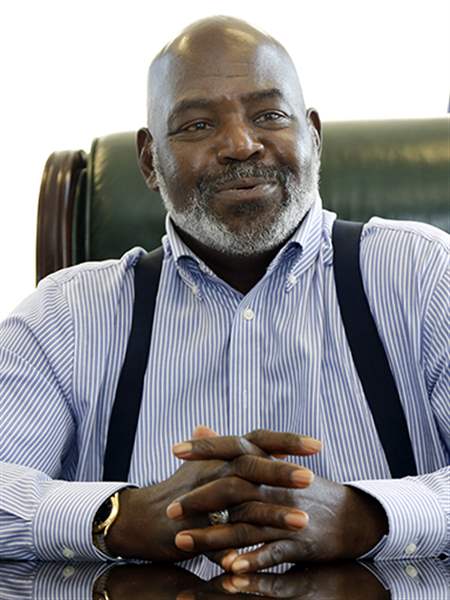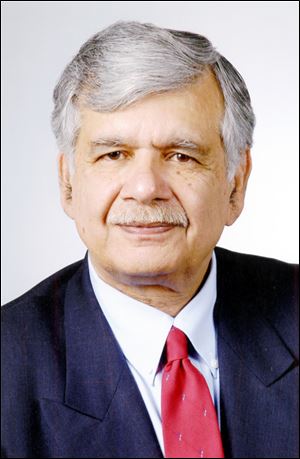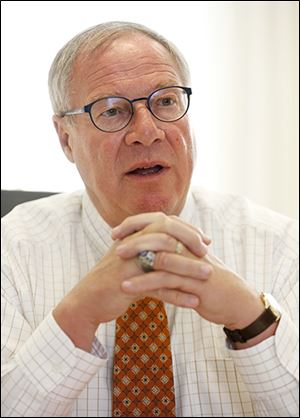
COMMENTARY
Toledo must live up to its declaration of compassion
7/1/2000
Bell
THE BLADE/JEREMY WADSWORTH
Buy This Image

Hussain
A week ago, Toledo City Council passed a resolution declaring that this is a compassionate city, joining other cities around the world that have made compassion part of their civic identitiy.

Bell
Is this yet another feel-good self-congratulatory slogan? Or does it really mean something ?

Collins
The simple answer is, it is real. It can have profound effects on a community if it is followed in letter and in spirit. The idea is to effect changes that encourage citizens to treat each other with compassion and develop a culture that allows a community to prosper.
The movement goes back to 2008, when the British writer Karen Armstrong was awarded the TED (Technology, Entertainment and Design) prize, which is given annually to someone who inspires the world. The prize is $1 million.
Ms. Armstrong’s wish was to create a charter that would inspire people around the world to become more compassionate in their daily lives. Among the nearly 100,000 people who support the idea are British entrepreneur Sir Richard Branson, musician Peter Gabriel, the Dalai Lama, Bishop Desmund Tutu, and Pakistan’s Mother Teresa, Abdul Sattar Eidi.
The charter taps the innate goodness of human beings by emphasizing that compassion is essential to relationships and fulfilled humanity. It asks people to transcend selfishness and to break down dogmatic and ideological boundaries, both political and religious.
It says that compassion leads to enlightenment and is indispensable to the creation of a just economy and a peaceful global community.
The charter challenges us to go where it hurts to enter. These are places of pain where we should share the brokenness, the fear, and the anguish of others.
In northwest Ohio, the concept of compassion is promoted through the efforts of people such as Judy and Woody Trautman and organizations such as the Multifaith Council. Through their efforts, the City of Toledo finally adopted the resolution.
Being a compassionate city has its rewards. Early intervention in the lives of at-risk youths has shown great promise of positive change. Compassionate programs save cities money that can be used for community betterment.
The resolution recommends the use of compassion as a key component in developing policies, procedures, tactics, and practical guidance to achieve core objectives for our community.
Toledo has what it takes to be a compassionate city. Cooperation among various religions and interfaith dialogues are common.
We take care of our needy and disfranchised. And Toledoans are a friendly bunch when we come across others.
The University of Toledo, through its Center for Religious Understanding, has sown the seeds of religious tolerance among the university community and in the community at large. Not many public universities can boast community-supported chairs in Catholic studies and Islamic studies and a visiting professorship in Judaic studies.
UT students donate their time and money to clean up neighborhoods, paint houses, and do chores for the needy. But there is a lot more to be done if Toledo is to become truly compassionate.
In 2008, Louisville citizens performed 107,000 acts of compassion in one week by donating one day apiece to help others. We can easily do that.
Resolutions are nothing if they are not taken seriously. Now that Toledo has committed to become a compassionate city, we need to hear from Mayor Mike Bell and his election challenger, D. Michael Collins, about how they would translate the high-minded resolution into concrete programs and projects. This should be a focus of the mayoral campaign.
Dr. S. Amjad Hussain is a retired Toledo surgeon whose column appears every other Monday in The Blade.
Contact him:aghaji@bex.net